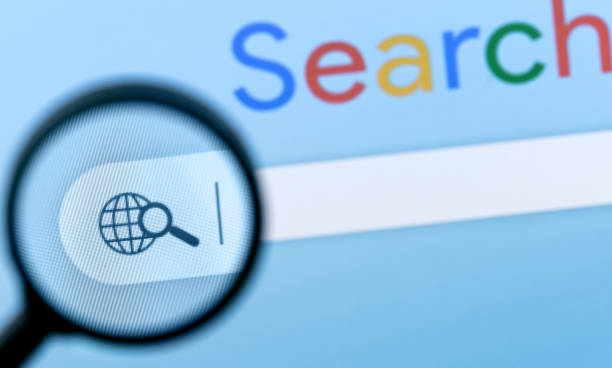Introduction to Mental Health Apps
Mental health apps are revolutionizing therapy in 2025, offering innovative ways for therapists to support clients beyond traditional sessions. Through mental health app development, these tools provide accessible, personalized resources that enhance client engagement and extend care. From mood tracking to virtual therapy, apps address modern challenges like accessibility and stigma, empowering both therapists and clients. This guide explores eight reasons why mental health app development is essential for contemporary therapy, with strategies for integration and HIPAA compliance. For expert digital solutions, visit Mental Health IT Solutions.
Why Mental Health Apps Are Vital for Therapy
Mental health apps complement in-person therapy by delivering on-demand support, enabling therapists to reach clients anytime, anywhere. With mental health app development, therapists can offer tools like guided meditations or CBT exercises, fostering continuous care. These apps also improve client retention, with users 3x more likely to engage regularly compared to traditional methods (IdeaUsher).
- Key Benefit: Extends therapy’s reach and impact.
- Challenge: Ensuring data security and clinical efficacy.
Explore digital strategies at The Ultimate Digital Marketing Guide.
1. Enhancing Accessibility to Care
Breaking Down Barriers
Mental health app development makes therapy accessible to clients who face geographic, financial, or scheduling barriers. Apps like BetterHelp provide virtual sessions, enabling rural or busy clients to connect with therapists instantly. Features like chat support or self-guided tools ensure 24/7 availability, reducing gaps in care.
- Include teletherapy options for remote clients.
- Offer multilingual interfaces for inclusivity.
- Test usability to ensure intuitive access.
For accessibility tips, see How to Optimize Your Mental Health Website.
2. Improving Affordability
Cost-Effective Solutions
High therapy costs prevent many from seeking help, but mental health app development offers affordable alternatives. Apps like Happify provide free CBT exercises, while subscription-based platforms like BetterHelp are often cheaper than in-person sessions. This affordability expands your client base, especially for uninsured individuals.
- Use freemium models to attract new users.
- Promote cost-saving features in marketing.
For cost-saving strategies, check Social Media for LMFTs.
3. Supporting Evidence-Based Interventions
Delivering Proven Techniques
Apps developed through mental health app development integrate evidence-based methods like CBT, DBT, or mindfulness, ensuring clinical value. Tools like Moodpath offer structured exercises that complement therapy, helping clients practice skills between sessions. Therapists can monitor progress via app data, enhancing treatment plans.
- Incorporate CBT or mindfulness modules.
- Validate interventions with clinical research.
- Update content regularly for relevance.
For content strategies, visit Content Marketing Strategies.
4. Ensuring HIPAA Compliance
Protecting Client Privacy
HIPAA compliance is critical in mental health app development to safeguard client data and maintain trust. Secure data encryption, anonymized tracking, and HIPAA-compliant servers prevent breaches. Regular audits and user consent protocols ensure apps meet regulatory standards, protecting your practice from penalties.
- Use secure platforms like SimplePractice for integration.
- Conduct compliance audits quarterly.
For compliance guidance, see HIPAA-Compliant Web Design.
5. Boosting Client Engagement
Encouraging Consistent Interaction
Mental health apps increase engagement by offering interactive features like mood trackers or daily reminders, a key benefit of mental health app development. Apps like Headspace encourage regular use with gamified elements, keeping clients connected to therapy goals. Engaged clients are more likely to attend sessions and achieve outcomes.
- Add push notifications for daily check-ins.
- Track engagement metrics to refine features.
For engagement tips, check Social Media Marketing Tips.
6. Facilitating Progress Tracking
Monitoring Client Outcomes
Mental health app development enables therapists to track client progress through features like mood logs or symptom trackers. Apps like Daylio allow clients to record emotions, providing data therapists can review to adjust treatment. This transparency strengthens the therapeutic alliance and improves results.
- Integrate analytics for real-time insights.
- Share progress reports securely with clients.
For tracking strategies, visit Leveraging SEO for Mental Health.
7. Reducing Stigma Around Therapy
Normalizing Mental Health Care
Mental health apps reduce stigma by offering discreet access to support, a significant advantage of mental health app development. Clients can explore resources privately, encouraging early intervention. Therapists can promote apps as low-pressure entry points to therapy, broadening their reach.
- Highlight anonymity in app marketing.
- Share educational content to destigmatize therapy.
For stigma reduction tactics, see Local SEO for Mental Health Therapists.
8. Integrating with Therapy Practices
Seamless Practice Integration
Mental health app development allows apps to integrate with therapy workflows, enhancing efficiency. Tools like SimplePractice sync with apps for scheduling or secure messaging, streamlining client management. Therapists can recommend apps as homework, reinforcing session work and improving outcomes.
- Choose apps compatible with EHR systems.
- Train staff on app integration protocols.
For integration tips, check How a Fast Mobile-Friendly Website Can Boost Your Practice’s Growth.
Best Practices for Using Mental Health Apps
Select apps that align with your practice’s goals, prioritizing evidence-based features and HIPAA compliance. Start by recommending one app to clients, monitor its impact, and integrate it with your website or social media for promotion. Combine app use with SEO and email marketing to enhance visibility. For advanced strategies, explore Mental Health Marketing Agency.
Mental Health App Development Tools
| Tool | Purpose | Key Feature | Resource |
|---|---|---|---|
| SimplePractice | Secure integration | HIPAA-compliant scheduling | HIPAA-Compliant Web Design |
| Firebase | App development | Secure data management | How to Optimize Your Mental Health Website |
| Google Analytics | Usage tracking | Engagement insights | Leveraging SEO for Mental Health |
| Canva | Promotional visuals | App marketing graphics | Social Media for LMFTs |
| Postman | API testing | Ensures app functionality | Content Marketing Strategies |
Conclusion
Mental health app development is transforming modern therapy in 2025 by enhancing accessibility, affordability, and engagement. By integrating evidence-based, HIPAA-compliant apps into your practice, you can support clients more effectively and reduce stigma. Start with one app, track its impact, and promote it through digital channels for maximum reach. Partner with Mental Health IT Solutions for expert support in leveraging mental health apps.







